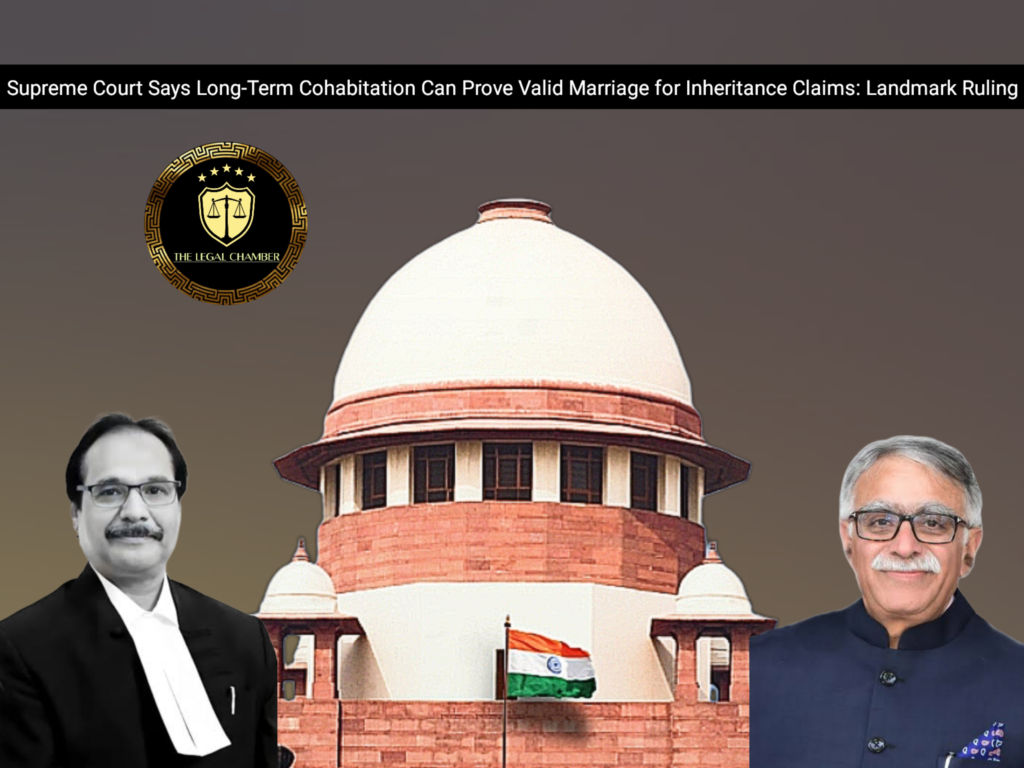
This Supreme Court judgment reinforces that under Section 50 of the Indian Evidence Act, the opinion of a person with special means of knowledge is relevant to prove a familial relationship. It upholds the legal presumption of a valid marriage from long-term cohabitation. The Court also affirmed that a party’s failure to enter the witness box, when facts are within their exclusive knowledge, warrants an adverse inference under Section 114(g). Revenue records do not confer title but only have fiscal value.
Facts Of The Case:
The dispute centered on the inheritance rights to the properties of Dasabovi, who had died intestate. The plaintiffs, Venkatappa and Siddamma, claimed to be his legitimate children from his first wife, Bheemakka. They alleged that after their father married a second wife, Chowdamma (Defendant No. 1), their mother was forced out of the marital home. Despite this, they maintained that they were in joint possession of the ancestral properties. After Dasabovi’s death, the defendants, Chowdamma and her son Balachandrappa, refused to acknowledge the plaintiffs’ share, leading the plaintiffs to file a suit for partition. The defendants’ core contention was that Dasabovi was never married to the plaintiffs’ mother, Bheemakka, and that Chowdamma was his only legally wedded wife. Consequently, they argued that the plaintiffs had no rightful claim to the properties. The Trial Court dismissed the suit, accepting the defendants’ denial. However, the High Court reversed this decision, decreeing the suit in favour of the plaintiffs. The Supreme Court appeal was filed by the defendants, challenging the High Court’s finding which rested primarily on the oral testimony of a witness who attested to the first marriage and the plaintiffs’ legitimacy.
Procedural History:
The suit for partition was initially filed by the plaintiffs (Venkatappa and Siddamma) before the Civil Judge (Senior Division) Holalkere, registered as O.S No.102/2001. The Trial Court, after framing issues and a trial, dismissed the suit on 24.03.2005, accepting the defendants’ denial of the plaintiffs’ legitimacy. Aggrieved by this dismissal, the plaintiffs preferred a Regular First Appeal (RFA No.935 of 2005) before the High Court of Karnataka at Bangalore. The High Court, in its impugned order dated 28.10.2010, allowed the appeal, set aside the Trial Court’s judgment, and decreed the suit in favour of the plaintiffs. The defendants, challenging the High Court’s reversal, then filed the present Civil Appeal No. 11330 of 2011 before the Supreme Court of India, which ultimately dismissed the appeal and upheld the High Court’s judgment.
READ ALSO:Supreme Court Modifies Order: Pre-1996 Encroachments on Forest Land Spared from Eviction
Court Observation:
Final Decision & Judgement:
The Supreme Court dismissed the appeal, upholding the High Court’s judgment. It affirmed the decree for partition passed in favour of the plaintiffs, thereby recognizing their legitimate share in the suit schedule properties. The Court concluded that the plaintiffs had successfully proved their status as the legal heirs of the deceased Dasabovi through his first wife. It found no infirmity in the High Court’s decision, which was based on a correct appreciation of evidence, including the presumption of a valid marriage and the adverse inference drawn against the defendants. The appeal was dismissed as devoid of merit, with no order as to costs.